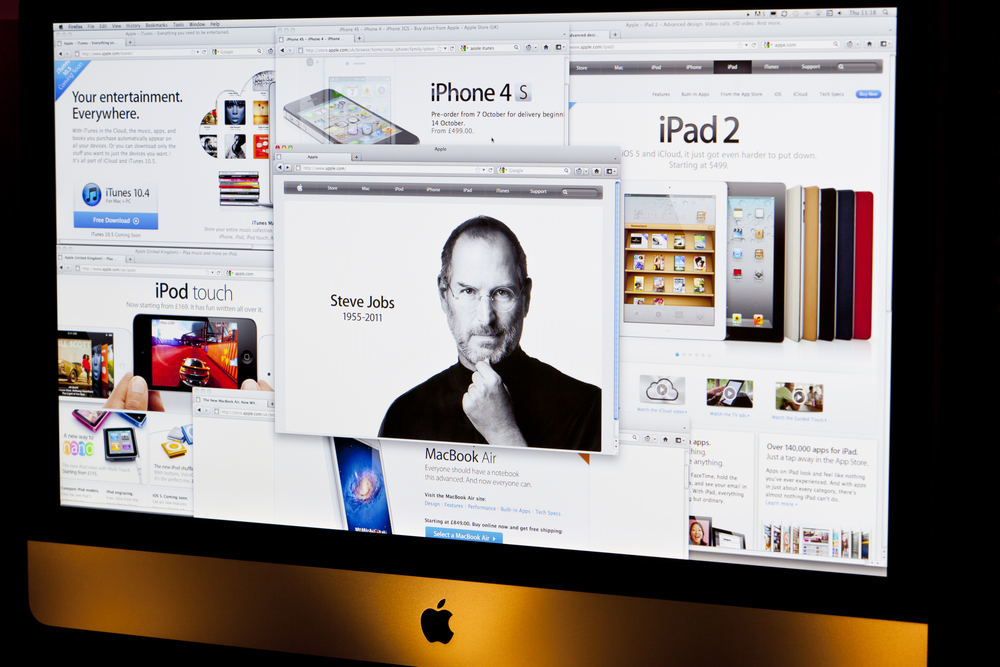Managing change in the workplace, in business and as an investor
A message from our CEO & Founder, Joseph Chou
When I was a student and arrived at my university – one with a reputation for being the best in the country – I was immediately overwhelmed by how advanced everyone else was compared to me.
They were better students, they came from wealthier families, had more opportunities; they seemed to be ahead of me in every way.
It threw me, and I got a little lost initially. But what I realised was that there was nothing I could change about them. But I could change myself.
So, I looked for something that I was passionate about and that I was good at; for me, it was English. Then I poured all my focus and energy into my study of English.
And though I started the year as one of the slowest students, I ended up as one of the most advanced. The university even started calling on me to interpret when international students or visiting guests came to the campus.
For me this was an important lesson: whether you’re currently behind or currently ahead – you can change that.
If you’re behind, you can work harder, smarter with more energy and focus – and get ahead.
If you’re ahead and become complacent or arrogant – others could catch up or overtake you.
This has helped me with many key decisions over the course of my life. It has inspired me to work harder in rebuilding my life in Australia after giving up my diplomatic career in China. It has also kept my feet firmly on the ground when I’ve achieved success.
The 3 types of people
I read a book recently which categorises people into three distinct categories based on their approach to life or change.
The first group (“Drifters”) believe you can only succeed when conditions are perfect, but whatever the conditions, there is always something stopping them.
The second group (“Millionaires”) are strong enough to take their lives into their hands but believe their success still depends on favourable conditions.
The third group (“Billionaires”) know they have it inside them, and they make it big in business independently of external factors.
Consider Steve Jobs who revolutionised the music industry by convincing record companies to allow him to sell songs individually for 99 cents on iTunes. Jobs needed songs on iTunes to make iPods a success, but at that time music was sold per album rather than per song. He was convinced he could change this model – and given time, he did.

To make iPods a success Steve Jobs changed the music industry by convincing record companies to sell songs individually on iTunes for 99 cents each.
Change is inevitable, growth is optional
The fact is, everything in life is constantly changing. External factors and situations will continue to change – whether you’re ready or not.
On the other hand, the ability to grow and adapt yourself to change is optional. Choosing not to grow and evolve will reflect the results you get. Those who choose to hold onto old beliefs tend to stay on that path for life and plateau. They won’t make any progress.
Sometimes change is happening even when it’s not apparent. We started Ironfish n 2006, a time when people didn’t believe in property investment anymore due to the Sydney and Melbourne market performance. What many of those people didn’t know was that Perth, Brisbane and Adelaide were quietly building up.
But from our experience, we knew the property market is cyclical and each city is in different stages of the cycle. That’s why we set up our business model to be national, so right now, for example, as Sydney cools, we can help our customers to get into Brisbane and other up and coming markets.
When lending tightened for investors, we again had to adapt our strategy to focus on customer service at point of settlement, to help our customers settle their properties successfully.
At tough times when other companies closed shop, we took the opportunity to grow our talent pool.
As the company matured and grew in confidence we became even more selective about which developers to work with, choosing developments that would align with the changing demands and needs of our customers and the market.
And as time went on and we had a strong foundation in property investment, we diversified into mortgage broking and property management, to continue the Ironfish service offering to our customers long-term. Similarly, for a long time I did not want to go into property development, but in order to fill a niche where a certain type of property that our customers wanted in a particular location wasn’t available, we evolved to develop some of our own projects as well.
Now amidst a backdrop of the recent election, US-China trade war and the credit squeeze, Ironfish has again seen a great opportunity to change and we’re right in the middle of embracing this change.

A changing market
As a property investor, having a mindset geared for change is crucial, because you’re working with so many moving parts, for example: a changing market, interest rates – as well as your own personal circumstances.
As an investor you can not expect things to stay the same – as much as we all want a great economy, low interest rates, zero vacancy, the best price, the fastest growth – conditions can never be perfect.
Without preparing for and adapting to change as it happens, you won’t achieve success as an investor.
If you are open to change, prepare your buffer, have a great support team in place, and continue to make yourself more valuable in the workplace (this one is your weapon) you will be able to manage and navigate change successfully, to achieve your long-term property goals.
Change requires work
While change is inevitable, many people prefer not to change because it’s uncomfortable and it feels risky. It’s not easy, it takes work.
Just like your health, if you don’t continue to work at it, eat well, exercise, you won’t be able to get fitter or healthier.
Same for your partnerships and relationships, you need to keep working on them, to keep growing as a person and adapt to new perspectives.
In my career, although I’ve changed jobs and industries, the one constant is that I’ve always been servicing people.
I believe very strongly in adding value in the workplace, as a way of making yourself more valuable. If you believe in your work and you believe in the vision of your company, then as changes occur – new management, a change in role, a requirement to put in longer hours – then you can adapt yourself accordingly. Because if the business needs it, then you need it too.
And if you’re going to have to do it anyway – you may as well do it with a positive attitude rather than being unhappy!
Of course, some things should never change. Your core values, principles and integrity should never be compromised. When I came to Australia, I was prepared to do just about anything to rebuild my life and career – but as long as it was legal, ethical and was in alignment with my own values and beliefs.
It’s also important not to change just for the sake of change – that’s not very smart either.
But embracing change and enacting change can bring positive results – I have seen it firsthand in business, in my career and also as a property investor.
Personally, I love change; change can help push you to grow as a person. Change can help you progress and find greater success and happiness as you stretch and fulfil your potential. Being willing to change is a willingness to take on a challenge. And I can tell you from experience, it’s well worth the effort.
Joseph Chou is the CEO and Founder of Ironfish. He travels the country speaking about property investment, entrepreneurship and personal development. Find out his next speaking engagement in your city here.